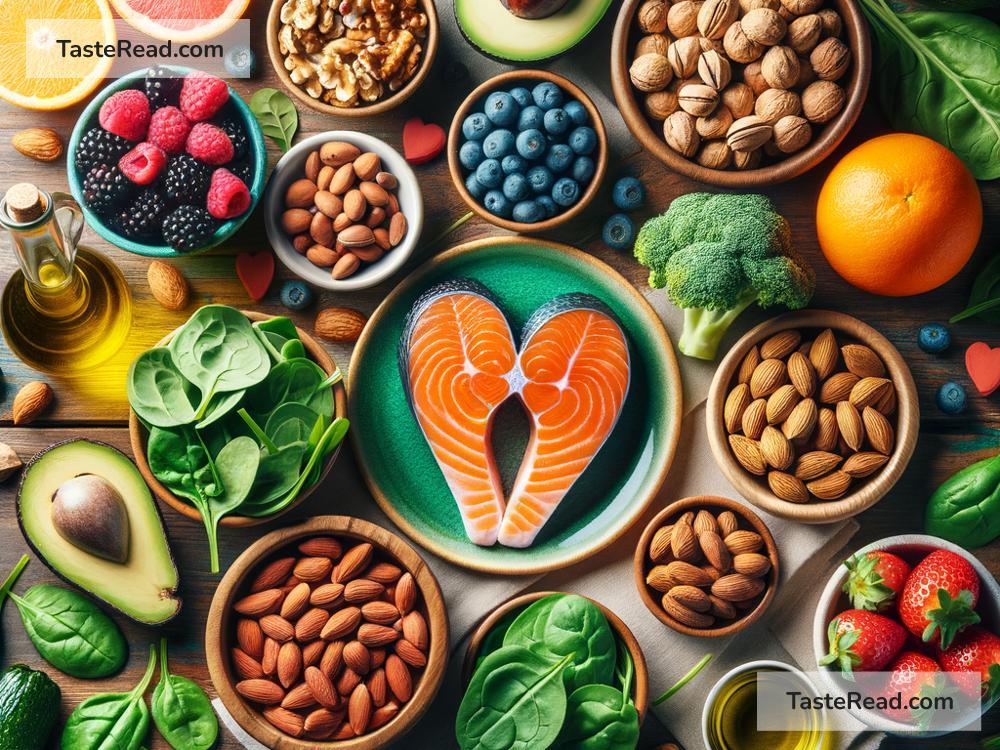Foods That Reduce the Risk of Heart Disease
Heart disease is one of the leading causes of death worldwide. Fortunately, what you eat can play a big role in protecting your heart. Some foods can help lower blood pressure, reduce cholesterol levels, and fight inflammation—key factors in keeping your heart healthy. The good news is, heart-healthy foods are not only nutritious but also delicious. Here’s a simple guide to foods that can reduce your risk of heart disease.
1. Oats and Whole Grains
Start your day with a bowl of oatmeal or switch to whole-grain bread and pasta. These foods are rich in fiber, which helps lower bad cholesterol levels (known as LDL cholesterol). Fiber also helps keep your blood sugar stable, which reduces stress on your heart. Brown rice, quinoa, and barley are great whole-grain options to add to your meals.
2. Fatty Fish
Fatty fish like salmon, mackerel, and sardines contain omega-3 fatty acids, which are great for your heart. Omega-3s help reduce inflammation, lower blood pressure, and decrease the risk of irregular heartbeats. Aim to eat fish at least twice a week. If you don’t like fish, you can try omega-3 supplements like fish oil or plant-based alternatives like flaxseed or walnuts.
3. Fruits and Vegetables
Fruits and vegetables are packed with vitamins, minerals, and antioxidants that protect your heart. They are also low in calories and high in fiber, making them excellent for maintaining a healthy weight. Some particularly heart-friendly choices include:
- Berries: Blueberries, strawberries, and raspberries are rich in antioxidants that help reduce oxidative stress and lower bad cholesterol.
- Leafy Greens: Kale, spinach, and Swiss chard are high in potassium, which helps control blood pressure.
- Avocados: These are loaded with healthy fats that support heart health.
Make it a habit to fill half your plate with colorful vegetables and add a piece of fruit to your snacks.
4. Nuts and Seeds
Nuts like almonds, walnuts, and pecans are full of heart-healthy fats, protein, and fiber. They help lower bad cholesterol and improve good cholesterol (HDL cholesterol). Seeds like chia, flax, and sunflower seeds are also packed with nutrients and omega-3s. Remember to eat nuts in moderation since they are calorie-dense; a small handful per day is plenty.
5. Olive Oil
Extra virgin olive oil is a staple of the Mediterranean diet, which is famous for its heart health benefits. Olive oil contains monounsaturated fats that help lower bad cholesterol and reduce inflammation. Use olive oil as a salad dressing, drizzle it over vegetables, or cook with it instead of butter or other less healthy fats.
6. Legumes
Legumes like beans, lentils, and chickpeas are excellent sources of plant-based protein, fiber, and minerals like potassium and magnesium. Consuming legumes can help lower blood pressure, reduce cholesterol, and improve overall cardiovascular health. Plus, they’re incredibly versatile! Use them in soups, salads, or as a healthy meat substitute.
7. Dark Chocolate
Yes, you read that right—chocolate can be good for your heart! But the key is choosing dark chocolate that contains at least 70% cocoa. Dark chocolate is rich in antioxidants known as flavonoids, which help improve blood flow and lower blood pressure. Enjoy small portions as a treat, but don’t overdo it, as chocolate can be high in sugar and calories.
8. Green Tea
Green tea is a great beverage for heart health. It contains antioxidants called catechins that help protect the arteries and reduce inflammation. Drinking green tea regularly has been shown to help lower blood pressure and cholesterol levels over time. Swap sugary drinks for a soothing cup of green tea to give your heart a boost.
9. Garlic
Garlic isn’t just a flavorful ingredient—it’s also a heart-friendly food. Garlic contains a compound called allicin, which has been shown to help lower blood pressure and cholesterol. Add fresh garlic to your dishes whenever possible, but avoid overcooking it, as heat can reduce its health benefits.
10. Low-Fat Dairy Products
Low-fat dairy, like yogurt and skim milk, is high in calcium, which is essential for maintaining healthy blood pressure. Greek yogurt is particularly heart-friendly because it’s high in protein and probiotics that support overall health.
Heart Health Tips Beyond Food
While eating heart-friendly foods is essential, consider adopting other habits to protect your heart. Regular exercise, managing stress, avoiding smoking, and limiting alcohol consumption all contribute to a healthy lifestyle that supports your heart and overall well-being.
Final Thoughts
Your heart works hard every second of every day, so taking care of it is essential for living a long and healthy life. By incorporating these heart-healthy foods into your diet, you can lower your risk of heart disease. Small changes, like swapping white bread for whole-grain bread or snacking on nuts instead of chips, can make a big difference over time.
Remember, a balanced diet is key. Pair these foods with regular physical activity and a positive outlook to build a healthy, happy heart. Start today—your future self will thank you!
Eat well, stay active, and keep your heart happy!


